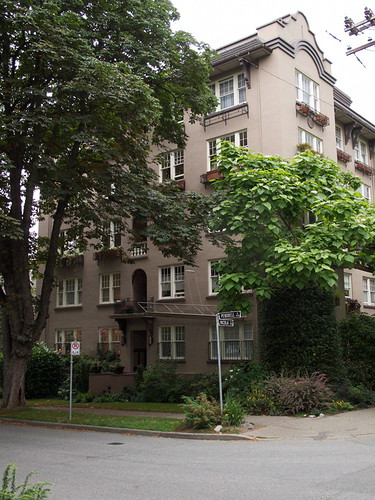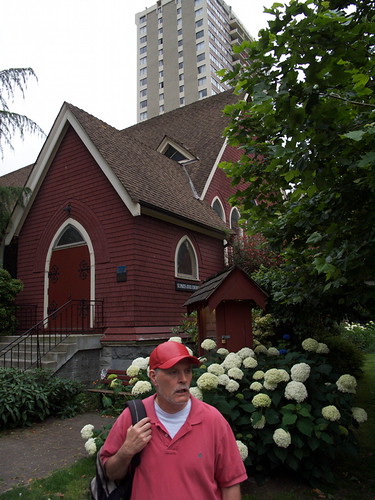It’s no secret I’m a sucker for a good twisty mind-fuck. Hell, I’m the only one of my friends who really liked Pornography: A Thriller, let alone thought it was the best film of the festival last year. I also have fond memories of Half-Life from the year before, which similarly left a lot of people scratching their heads.
Strapped wasn’t quite up to the level of these two films. The mind-fuck wasn’t that twisty, the writing itself took itself a little too seriously, and the symbolism was too heavy-handed. Not that it stopped me from enjoying the movie.
It’s no secret I’m a sucker for a good twisty mind-fuck. Hell, I’m the only one of my friends who really liked Pornography: A Thriller, let alone thought it was the best film of the festival last year. I also have fond memories of Half-Life from the year before, which similarly left a lot of people scratching their heads.
Strapped wasn’t quite up to the level of these two films. The mind-fuck wasn’t that twisty, the writing itself took itself a little too seriously, and the symbolism was too heavy-handed. Not that it stopped me from enjoying the movie.
The film starts with a man taking a hustler up to his apartment. After their encounter (which leaves his client relaxed and happy and feeling “free”), the hustler collects his money, steals a small figurine of a griffon, and tries to leave the apartment building—but can’t. Exit signs point to dead ends, corridors all look alike. After a bit of wandering he finds stairs, but is accosted by a man who calls him “Eddie” (not the name he gave his client; I think that was “Alex”), insists he knows him, and invites him to his place down the hall. The hustler (oh hell, let’s call him Eddie for now) decides to play along, which includes matching his new friend Leon’s campier behaviour.
At the party Eddie strips (for money), blows one of the guys (for more money) and then leaves. Wandering the halls some more he’s accosted by a hunky young father who agrees to show him the way out, but really wants to take him down to the laundry room to suck his dick and lick his ass. And then punch him in the nose. Eddie is saved by the arrival of a nice older gentleman who takes him up to his place in the attic, then fills him (and the audience) in a little on the nature of the building.
Eddie, it seems is stuck in some kind of maze or labyrinth. Not the same concept, as Jeff, the older gentleman, exposits: a maze is a trap, designed to lead you astray and hide the way out. A labyrinth, on the other hand, is a journey with no choices, no confusion. You have to keep going and eventually you’ll reach your destination. Eddie, Jeff says, is “lost” but the young father who attacked him is “trapped”—in lies, in false labels and names.
And then they fuck. Seems to be a recurring theme. On his way down the stairs Eddie meets Gary, one of the people at Leon’s party, who also invites him to his place. Gary admits that he’s intensely attracted to Eddie, has actually dreamed about him, and wants to kiss him. For money. No fucking, no blowing, just five minutes of making out to fill a hole in Gary’s soul. Eddie initially refuses, since kissing is far too intimate for him, but Gary keeps offering him more money, and he finally accepts.
They make out, and it’s apparently transcendant. So good, in fact, that they both have spontaneous orgasms with their pants still on. Gary is satisfied, both physically and spiritually, and Eddie himself is awed by the experience. Before leaving he gives Gary the griffon figurine he stole, and easily finds the way out: a very ritzy-looking spiral staircase, leading down to a rather pretty lobby. But before stepping out into the sunlit street, Eddie makes a choice: he runs back up the stairs, back into Gary’s arms.
The end.
So… that was kind of interesting. It had some good elements, but in hindsight I don’t think they really meshed together. In my original tweet I called this movie “Jacob’s Ladder with hustlers”, and I stand by that. Whereas Jacob was going through a kind of purgatory and needed to ascend to heaven (I think; I mean, that movie was seriously ambiguous), Strapped tacked on elements of spiritual awakening through sex that kinda left me cold. Plus, some symbols really didn’t add up. What about the rain and leaky roof in Jeff’s attic apartment? Did it represent his higher spiritual awareness (because, hey, attic) and openness to the true outside world? What exactly did the griffon represent? Eddie was trapped in the building after he stole it, and found the way out after he gave it up. What should I read into this? Was it attachment, possession, harmful patterns in Eddie’s life that he had to choose to break?
And who were all these other characters? Souls also lost or trapped, or manifestations of the building existing only for Eddie, serving as obstacles or spiritual stations on his journey? Gyorgy, Eddie’s first client, felt “free” after getting fucked and spilling his guts and true name, implying that he was real, and would find his way out soon. If, then, all the other characters are real, is the building just a metaphor for life, and the quest for enlightenment? If so, what does it say about Eddie that he chose to stay? Is love better than enlightenment?
Am I totally overthinking this? Ehh, maybe. That’s okay, though. I had fun watching the movie, and fun writing this review, and that’s what counts, right?

